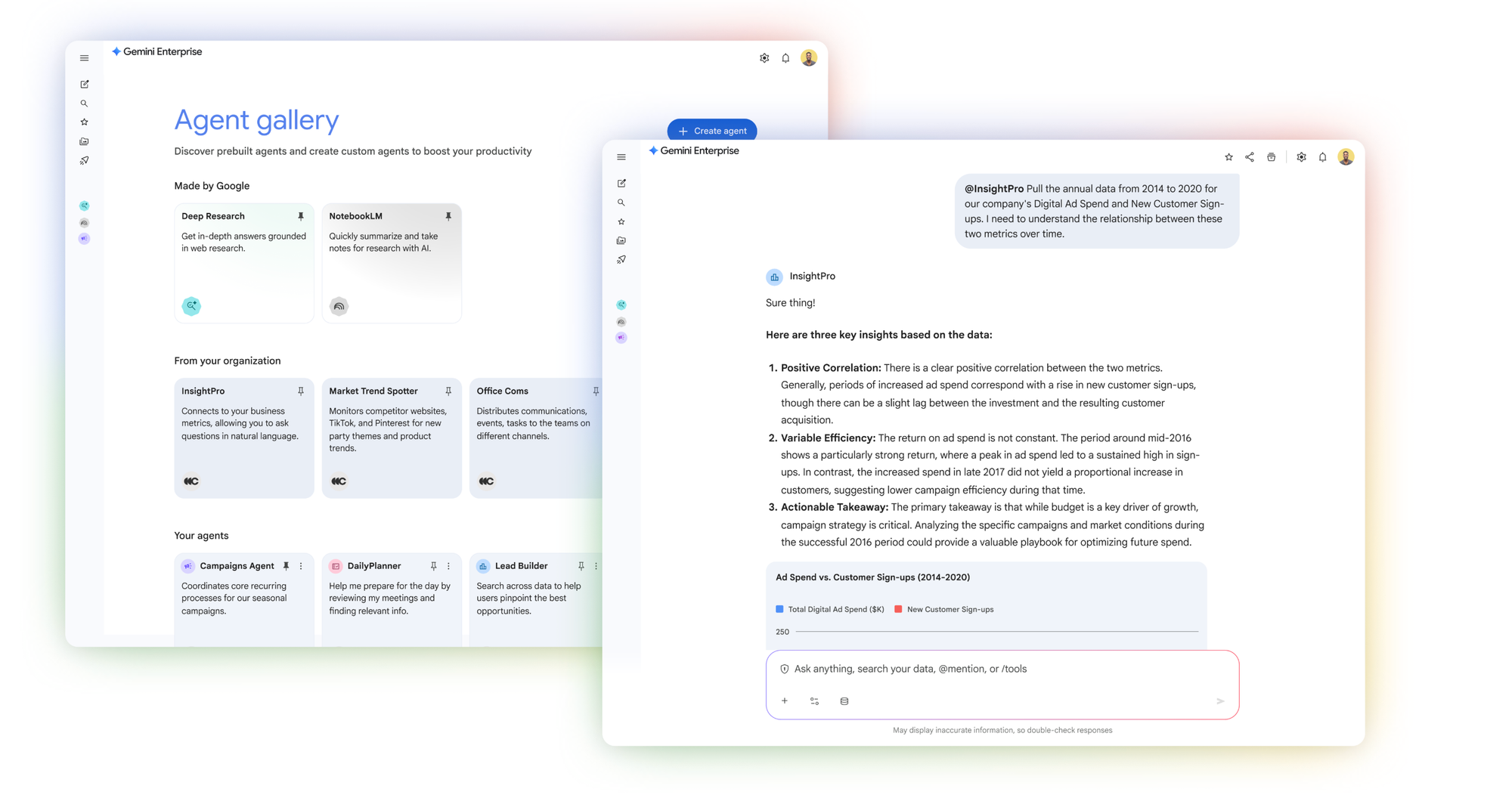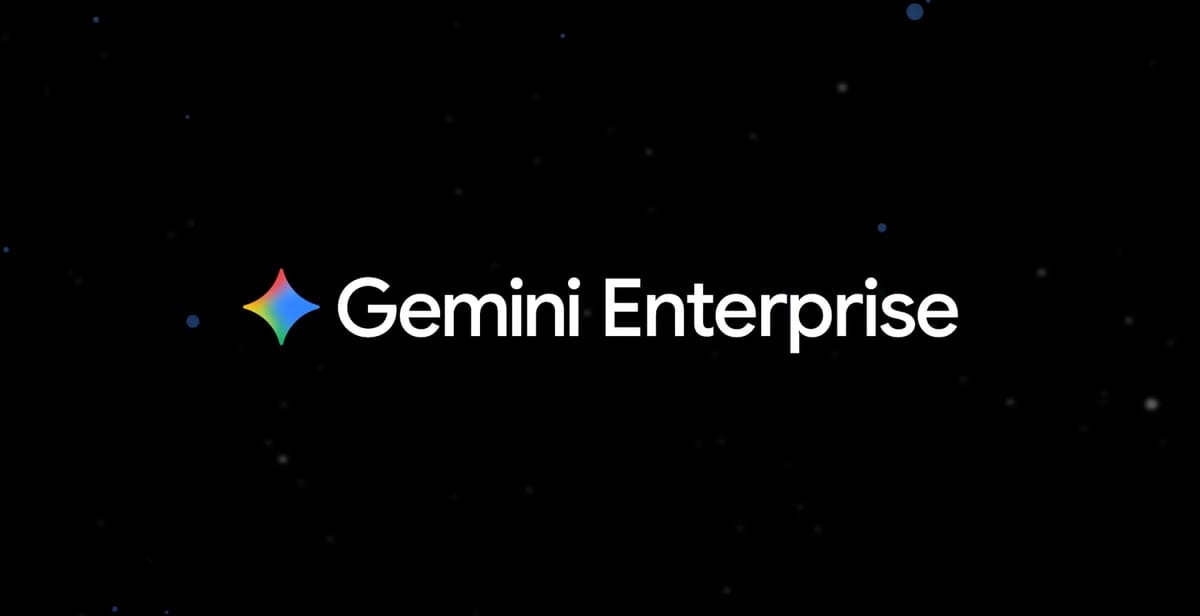Google wants one doorway for all your workplace AI. Today it launched Gemini Enterprise, a subscription platform that pulls chat, enterprise search, and AI agents into a single interface—and plugs them into the systems you already use.
Key Points
- $30/user/mo for Enterprise; $21 for Business.
- Prebuilt agents plus a no-code workbench; central governance and security.
- Works with Google Workspace and third-party stacks like Microsoft 365, Salesforce, SAP.
- Early customers include Gap, Figma, Klarna.
At its “Gemini at Work” event, Google positioned Gemini Enterprise as the new entry point for AI at work: a chat UI that can search across company systems, call tools, and orchestrate agents—Google’s and yours. The idea is less “ask a bot a question,” more “delegate a workflow.”
Under the hood, Google is leaning on its latest Gemini models and packaging prebuilt agents (for deep research, data analysis, code, and customer engagement) alongside a no-code/low-code workbench to build and chain custom agents. There’s also a central governance layer for security, audit, and policy—an area buyers increasingly scrutinize as agent deployments scale.
Pricing lands about where many CIOs expect: $30 per user per month for Gemini Enterprise (Standard/Plus editions) and $21for Gemini Business, a lighter tier aimed at departments and SMBs. That puts Google in the same budget conversation as Microsoft’s Copilot SKUs and OpenAI’s enterprise offerings.
Crucially, Google isn’t trying to wall you into Workspace. Gemini Enterprise integrates with Microsoft 365, Salesforce, and SAP, in addition to Google’s own stack—important for mixed estates. Early adopters include Gap, Figma, and Klarna, signaling traction beyond tech.

There’s a clear agents-first posture. Google says the platform replaces last year’s Agentspace app and adds a visual Agent Designer. New and upcoming vertical agents—like Data Science Agent and an upgraded Customer Engagement Suite—aim to shrink time-to-value. In practice, that means less wiring, more “spin up an agent, connect data, measure outcomes.”
Google is also pushing open protocols for the emerging “agent economy.” Its Agent2Agent (A2A) targets cross-vendor agent interoperability, while the Agent Payments Protocol (AP2) (developed with payments partners) sketches a way for agents to transact with auditable proofs. If these standards stick, buyers get portability and fewer bespoke integrations.
Why now? The enterprise AI race is heating up on all fronts. Microsoft continues to ship Copilot across 365 apps, and OpenAI is adding business solutions inside ChatGPT. Google’s play is to centralize: one place to discover, build, govern, and run agents grounded in company data—plus the ecosystem to match. Meanwhile, Google Cloud’s scale (now a >$50B annual run-rate) gives it resources to battle for the desktop.
One more telling signal: Figma expanded its partnership with Google today to bring Gemini models like 2.5 Flash into design workflows—evidence that Google’s enterprise pitch extends well beyond back-office automation into daily creative tooling.
The subtext is simple: the AI platform you choose will shape how your teams search, decide, and ship. Google’s bet is that giving you the platform, not just the models, is the lever that moves real work.

